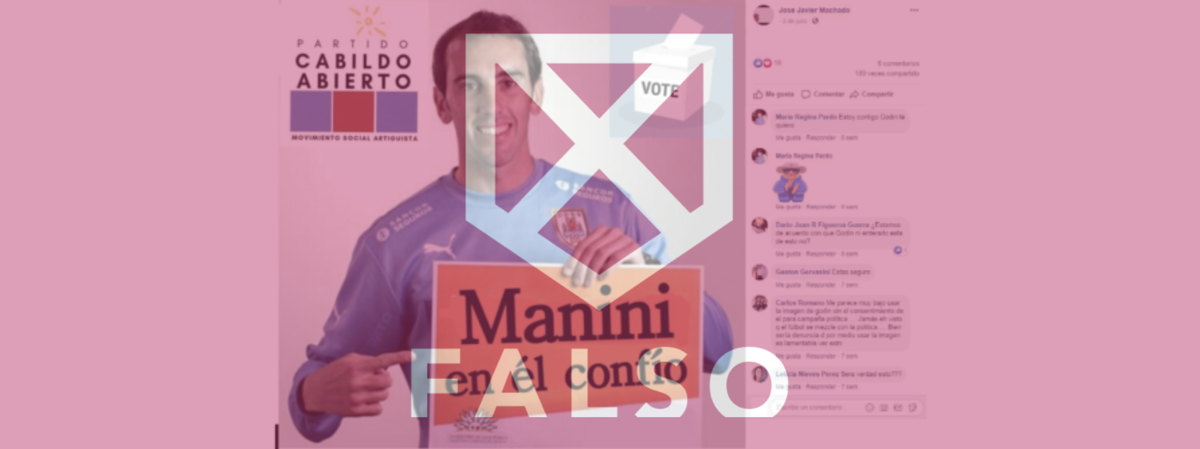A photo of the Uruguayan national soccer team captain, Diego Godín, supporting a presidential candidate. A social media post about another presidential candidate who missed a Senate session during which a declaration about Venezuela was discussed. A government leader who appears to have ties to the National Rifle Association in the U.S. Figures showing scandalously high salaries enjoyed by members of the Uruguayan economic minister’s family.
The above are all examples of information that recently went viral in Uruguay — each of them either partially or completely deemed false by Verificado.uy, a fact-checking platform that launched in Uruguay this past summer.
Similar to platforms launched before elections in the U.S., France, Spain, the U.K., Mexico, Brazil and Argentina, this fact-checking project relies on collaboration, with many media organizations working together within it.
“This is about creating media coalitions,” said Ana Matyszczyk, the project’s journalistic coordinator.
The media behind the platform are varied: newspapers, radio stations, TV channels and websites. “Despite the differences, things are working fantastic,” said Matysczcyk.

The collaboration is not just limited to media outlets, however. Civil society organizations, and public and private universities are also involved.
“There’s a difference between us and other countries. We’re the first country that understands that the challenge of fighting misinformation doesn’t just lie with the news industry. It must involve others, including universities and civil society actors,” said Matysczcyk. “They are two pillars that sustain the community and they should be represented. This problem belongs to everyone.”
The project, which has received funding from AVINA Foundation, Google, Facebook and First Draft, focuses on two types of content: viral social media content with no specific author or source, and public speeches made by presidential candidates.
“The universe we work in may seem far-reaching, but in reality it’s quite narrow. There are a lot of criteria we’re using to filter and refine what we’re going to cover,” Matyszczyk explained.
Though the platform has been up and running since July, Matyszczyk believes that the hard work is still yet to come. “The most intense part of the [presidential] campaign hasn’t started yet, and it will run for weeks before the elections, when we will feel the flow of misinformation”.
National elections in Uruguay will be held on Oct. 27. However, in the event that no candidate receives 50% of the vote — the most probable scenario — a second, run-off election would be held on Nov. 24.
Challenges
Verificado.uy has performed 17 fact checks to date. While the work is going smoothly at the moment, the team is aware of what awaits as the electoral campaign intensifies.
“This is a giant and complex system, and it’s not easy to make all the gears fit,” said Matyzczyk. “All the experiences from around the world show that these types of projects start small and grow from there. By the end of an electoral campaign, you realize just how powerful and effective this work is.”
Another problem she identified is how to maintain a balance of the number of fact-checks among each party’s candidates.
Verificado.uy, meanwhile, is not immune to attacks, even from other journalists. “We’ve had critics, and I’m sure we’ll gain more. This kind of project has never been carried out before in Uruguay, and the critics are part of this process,” said Matyszczyk.
Even amid the criticism, she is proud of the project and considers it a success.
“It surprised me to see how media organizations that interpret things completely differently can end up agreeing with one another,” Matyszczyk continued. “This actually helps make the verification more accurate than one might think. It is exemplary behavior.”
Santiago Sanchez is the IJNet Spanish editor.
Images courtesy of Verificado.uy.


